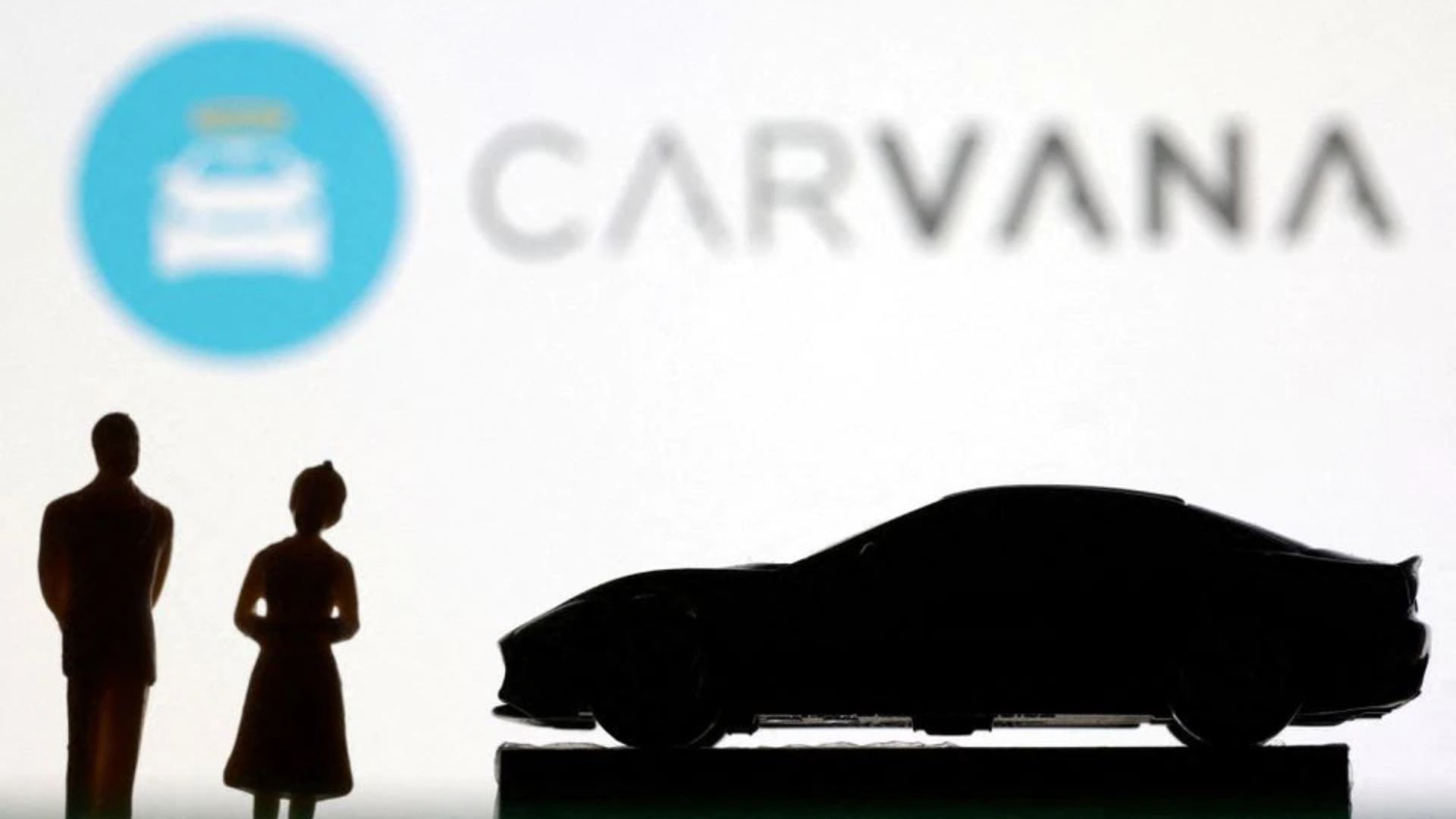July 19 (Reuters) – Carvana’s (CVNA.N) shares soared as much as 36% in morning trading on Wednesday after the troubled used-car retailer struck a deal with most of its term bondholders to cut its outstanding debt by more than $1 billion.
The agreement, with a group including private-equity firm Apollo, eases some of Carvana’s liquidity issues as it struggles to cope with a slump in demand for used cars.
“Apollo is pleased to support this debt exchange agreement, which stands to significantly strengthen Carvana’s financial position while providing creditors with new first lien debt,” Apollo’s deputy CIO of credit, John Zito, said in a statement.
As of the end of June, Carvana had long-term debt of $6.54 billion, relatively unchanged from a year earlier.
Carvana, which allows customers to buy cars online, became popular during the COVID-19 pandemic, as people opted for readily available used cars instead of buying newer vehicles, which were in short supply due to a global chip crunch.
But the company has been struggling to sell cars acquired at elevated prices as buyers, hit by inflation and worried about a recession, cut spending.
Carvana shares have lost 87% of their value in the past two years. The company’s market capitalization is $7.5 billion, well below the $60 billion it commanded in 2021.

In order to strengthen its balance sheet and attain positive cash flow, the company has been trimming inventory and slashing advertising expenses.
Carvana said on Wednesday it would attempt to raise up to $1 billion through a stock sale.
SHORT SQUEEZE?
In premarket trading on Wednesday, Carvana’s shares rose as high as $57, in what traders said looked like a short squeeze.
About 54% of Carvana’s publicly available shares were being shorted as of July 18, according to estimates from analytics firm Ortex.
Short-sellers borrow shares to bet on declines, but if a stock rallies then they may be forced to buy back shares to avoid losses, leading to a short squeeze.
“Some people were (selling) the stock last night expecting they’re going to warn. They didn’t warn – they actually beat and the numbers were pretty good,” said Dennis Dick, market structure analyst at Triple D Trading.
Carvana’s quarterly revenue came in at $2.98 billion, surpassing Wall Street’s average expectation of $2.59 billion.
Analysts have been concerned about Carvana’s financial health as the slump in vehicle demand collided with a $2.2 billion debt-funded deal to buy auto auction house Adesa.
The latest debt agreement will eliminate more than 83% of Carvana’s unsecured notes maturing in 2025 and 2027 and lower required cash interest expense by over $430 million per year for the next two years. The noteholders will now receive new notes secured by Carvana and Adesa assets.
Carvana’s second-quarter net loss narrowed to $58 million, or 55 cents per class A share, from $238 million, or $2.35 per class A share, a year earlier. Analysts, on average, had expected the company to post a loss of $1.15 per share.











